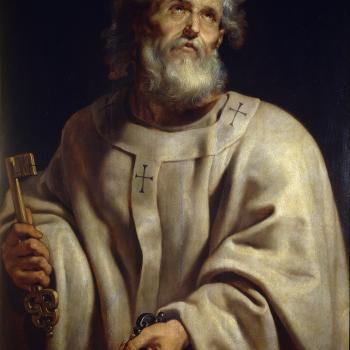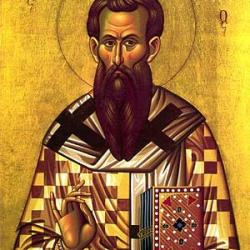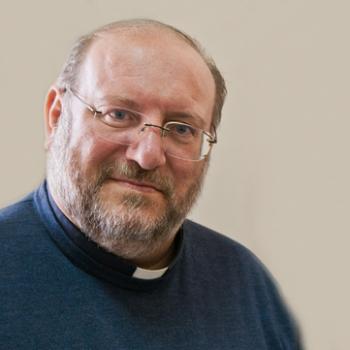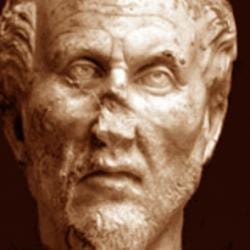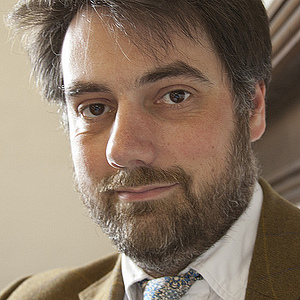 It will not be a surprise to say that the post-synodal Apostolic Exhortation Amoris Laetitia, has caused diverging reactions in the Catholic world. Some people have exalted the documents while other take issues with AL, calling it “Amoris moestitia.”
It will not be a surprise to say that the post-synodal Apostolic Exhortation Amoris Laetitia, has caused diverging reactions in the Catholic world. Some people have exalted the documents while other take issues with AL, calling it “Amoris moestitia.”
Certainly one of the most evident proofs of the difficult reception of AL was a document signed by 45 Catholic scholars and academics, addressed to Cardinal Sodano (Head of the College of Cardinals) and to all the Cardinals and Patriarchs, asking them to advice the Pope about the issues related to AL that the document is denouncing.
The signatorees, not revealed at the very beginning, was leaked to the National Catholic Reporter on July 22, 2016 and include scholars from many continents, laypeople and clergy alike. As soon as the existence of this document was revealed, the spokesperson for this group came out to address questions coming from the press.
Professor Joseph Shaw is a research fellow and member of the faculty of philosophy at Oxford University. He has studied both theology and philosophy and among his interests are St Thomas Aquinas, Ethics and the so called “principle of double effect.” He was co-founder of the Oxford University Gregorian Chant Society and is the Chairman of the Latin Mass Society. We asked Professor Shaw about the document and his research interests.
Can you give us some background on the document concerning Amoris Laetitia?
A group of Catholic theologians were concerned about the effect Amoris laetitia(AL) has been having on the public understanding of the teaching of the Church, as passages are being used to justify positions which are clearly at odds with the Church’s teaching. Over a period of many weeks, they developed a document which identified passages in AL, problematic interpretations of or conclusions from these passages, and authoritative statements of the teaching of the Church. The question then was: what to do with such a document?
Rather than denounce Amoris laetitia, or simply add to the debate about its correct interpretation, it was decided to ask the Cardinals, as the Pope’s official advisors, and the Patriarchs, to seek from the Holy Father a clarification which would rule out those interpretations of AL which are incompatible with the Faith.
Which passages?
Nineteen passages and associated interpretations are listed. Among the teachings at issue are the real possibility with the grace of God of obeying all the commandments, the fact that certain kinds of acts are wrong in all circumstances, the headship of the husband within the family, the superiority of consecrated virginity over the married life, and the legitimacy of capital punishment under certain circumstances. The appeal also addresses the question of divorced and civilly remarried Catholics, who have made no commitment to continence, being admitted to Holy Communion.
How do we strike a balance between justice and mercy?
The last noted issue illustrates the relationship between justice and mercy. God does not will anyone’s damnation, but makes available the graces necessary for salvation. This is particularly clear in the case of sinners who are Catholic, who have access to the Sacrament of Penance.
This is God’s mercy: that our sins can be forgiven. It is not in tension with God’s justice, because that forgiveness is based on the atoning sacrifice of Christ on the Cross, and, on the penitent’s part, with an act of will to seek forgiveness (contrition), and penance. The immensity of God’s mercy, which respects both justice and our free will, is staggering.
On the other hand, to tell sinners that they need not avail themselves of this opportunity, that they can continue in their sins, is neither justice nor mercy.
In these days there was a lot of talk about the orientation of the priest during the Mass after the “exchange” between Cardinal Sarah and the Vatican. What is your opinion about it?
My own opinion is that the theological and historical arguments for the celebration of Mass ad orientem are overwhelming. It continues the tradition of prayer towards the East found in the Temple cult of the Old Testament, now understood in terms of the return of our Lord from the East in his Second Coming. Again, Cardinal Ratzinger wrote of the danger of celebration versus populum encouraging a sense that the community is worshipping itself.
On the other hand, imposing ad orientem worship in the Ordinary Form of the Mass often arouses extremely strong opposition from the ordinary Faithful, not to mention bishops. There are complicated reasons for this, but it is undeniable that celebration ‘facing the people’ is part of the package of changes made in the reform of the liturgy designed to create the possibility of a new kind of liturgical participation: face to face with the priest, understanding every word of the liturgy, and seeing every gesture.
For this reason I am doubtful that worship ad orientem can be imposed in the Ordinary Form. What the theological discussion does achieve, of course, is an explanation and defense of the practice of the Traditional Mass, the Extraordinary Form”.
What is your opinion about Pope Francis?
As a supporter of the Traditional Mass, I have been very pleased to see that Pope Francis has very emphatically refused to reverse Pope Benedict’s provision for the wider celebration of this Mass. Also noteworthy is his giving faculties to hear confession to the priests of the Society of Pope Pius X.
Against this must be set the confusion, as he himself has acknowledged, which has attended some of his spontaneous remarks, and indeed some of his more carefully prepared documents, including Amoris laetitia.
What are your main interests in Philosophy? What is the “Principle of Double Effect”?
My main interest in Philosophy is normative ethics: questions of how to determine how to act. ‘Double effect’ is the method of analyzing moral actions which aim at something good, but bring about other, bad things, at the same time.
Since Catholic ethics rules out killing the innocent, for example, it is important to have a way of dealing with actions which bring about deaths as side effects. Were we to say that it is never permissible to cause a death, then it would be wrong, for example, to build a road on which there might one day be a fatal accident.
It is not wrong to do such a thing, however, because a future fatal accident, however foreseeable, is not intended by the road-builder, and this evil is not out of proportion with the good which the road will predictably bring about (if, that is, the road is carefully planned and properly built).
Can Philosophy and Theology still be friends after the 20th century?
I have studied both Philosophy and Theology in Oxford, and on both sides I met people who thought that the other discipline was bad. This I believe was ultimately a consequence of a Protestant and Enlightenment separation of Faith and Reason. Friendly relations between them must be based on an acknowledgement both that the data of Revelation is a legitimate source of information, and also that the method of rational analysis is a legitimate way of clarifying our knowledge.
What are, in your opinion, the contemporary Christian philosophers that we should absolutely read?
To speak only of philosophers writing in English, the neo-Thomism of Edward Feser is very interesting, and the revival of Aristotelian ethics, led by the late Elizabeth Anscombe and by Alastair MacIntyre, has had a decisive influence, and opened up possibilities for a Catholic approach to ethics even in secular analytic philosophy.
In what way can we approach St Thomas Aquinas, in our contemporary world?
The Ven. Fulton Sheen said that what the Church drops, the world picks up. This has certainly proved to be the case with Aquinas, and we have seen a steady revival of interest in him and other Medieval philosophers since the 1960s. First it was Medieval logic and philosophy of language which caught the interest of secular philosophers; now their metaphysics and ethics are also being explored.
Something extremely interesting to modern ethics is the way Aquinas combines a very acute moral psychology, and an interest in moral education and dispositions associated with the Aristotelian tradition, with an acknowledgement of the role of ethical rules, like the Ten Commandments.
Today philosophers are seeing the limitations of the Ethics of the Enlightenment, whether the subjectivism of Hume or the rigid rule-bound theories of Kant and the Utilitarians. The decay of the Enlightenment approach has its dangers, with post-modernism and nihilism, but it also creates an open-mindedness about thinkers like Aquinas which was not there before.
Can Philosophy lead us to rationally prove the existence of God?
The Church teaches that the existence of God can be known by natural reason, and I would certainly defend that view as a philosopher. The existence of the universe, particularly given its beauty and order, and the existence in it of life capable of thought and culture, needs explaining, and the best explanation is God.
To reject that explanation is an arbitrary refusal to accept the simplest explanation. Some skeptical philosophers suggest explaining the universe in terms of multiple universes, which is to appeal from the relatively simply to the more complex, the opposite of what explanation should be doing. Others suggest that God is not a good explanation, because he himself should be explained, but this is not an objection they would make of any other explanatory hypothesis: explanations are good, or not, on their own terms.
The debate is of course a complex one; what is encouraging is that new generations of theist philosophers, both Catholics and non-Catholics, are developing ever more sophisticated arguments for the existence of God, and responding to objections. For all the decline in religious belief in society, this is not a bad time to be a Catholic interested in the philosophy of religion.
(From O Clarim)



